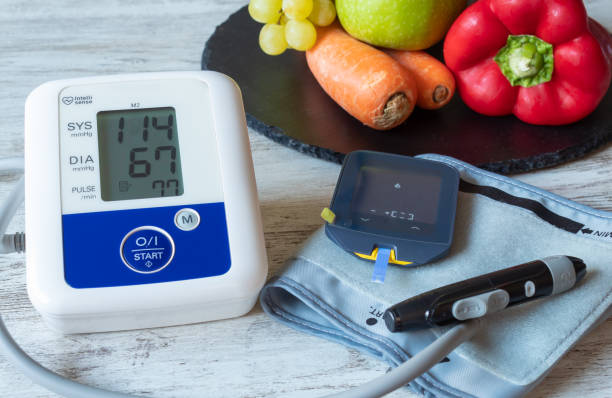A Comprehensive Guide to Prevent and Manage High Blood Pressure
High blood pressure, also known as hypertension, is a common condition that affects millions of people worldwide. It is often referred to as the “silent killer” because it can lead to severe health complications if left untreated. The good news is that high blood pressure is largely preventable and manageable with a few simple lifestyle modifications. In this blog, we will explore effective strategies to prevent and manage high blood pressure, helping you take control of your cardiovascular health.
Know Your Numbers
The first step in preventing and managing high blood pressure is to know your numbers. Regular blood pressure check-ups are essential to monitor your cardiovascular health. Optimal blood pressure is typically around 120/80 mmHg but may vary from individual to individual. If your readings consistently show elevated blood pressure, it’s important to take action to prevent complications.
Adopt a Healthy Diet
Eating a balanced and nutritious diet plays a crucial role in maintaining healthy blood pressure levels. Emphasize the following dietary habits:
- Reduce Salt Intake: High sodium consumption can contribute to elevated blood pressure. Limit your intake of processed foods, canned soups, and fast foods, as they tend to be high in sodium. Opt for fresh, whole foods and flavour your meals with herbs and spices instead.
- Increase Potassium Intake: Potassium helps regulate blood pressure. Incorporate potassium-rich foods into your diet, such as bananas, oranges, spinach, sweet potatoes, and avocados (not for diabetic patients).
- Adopt the DASH Diet: The Dietary Approaches to Stop Hypertension (DASH) diet emphasizes fruits, vegetables, whole grains, lean proteins, and low-fat dairy products. This approach has been shown to effectively lower blood pressure.
Maintain a Healthy Weight
Excess weight puts additional strain on your cardiovascular system, increasing the risk of high blood pressure. Aim for a healthy weight range by adopting a balanced diet and engaging in regular physical activity. Even losing a modest amount of weight can have significant benefits for blood pressure management.
Engage in Regular Physical Activity
Regular exercise is a cornerstone of maintaining overall health, including blood pressure control. Engage in aerobic activities such as brisk walking, jogging, cycling, or swimming for at least 150 minutes per week. Additionally, strength training exercises a couple of times a week can further enhance your cardiovascular fitness.
Limit Alcohol Consumption and Quit Smoking
Excessive alcohol consumption can raise blood pressure. Men should limit themselves to two drinks per day, while women should stick to one drink per day. Furthermore, smoking damages blood vessels and significantly increases the risk of high blood pressure. If you’re a smoker, seek support to quit and enjoy the numerous benefits of a smoke-free life.
Manage Stress
Chronic stress contributes to high blood pressure. Find healthy ways to manage stress levels, such as practicing relaxation techniques (deep breathing, meditation, yoga), engaging in hobbies, spending time with loved ones, or pursuing activities that bring you joy. Aim for a balanced work-life routine and prioritize self-care.
Monitor Medications and Consult a Healthcare Professional
If lifestyle modifications alone are not sufficient to control your blood pressure, consult a healthcare professional. They may prescribe medications to help manage hypertension. Adhere to the prescribed medication regimen and attend regular follow-up appointments to monitor your progress.
Conclusion
Preventing and managing high blood pressure is a lifelong commitment to your health. By adopting a healthy lifestyle, including a balanced diet, regular exercise, stress management, and monitoring your numbers, you can effectively control your blood pressure and reduce the risk of associated complications. Remember, small changes can yield significant results.


